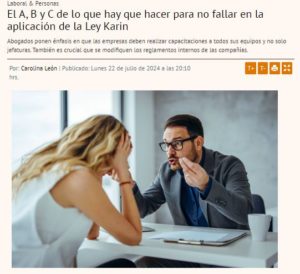A decision by Peru’s competition authority dismissed an unfair competition claim that had dogged Uber’s local entity for two years. In doing so, it established important criteria on the nature of transport intermediation applications under a sharing economy model. It wins the regulatory category of our Deal of the Year Awards.Regulatory
With the help of Philippi Prietocarrizosa Ferrero DU & Uría (Peru), Uber won a landmark case before Peru’s competition authority, allowing the US transport giant to continue to offer its services in the country.Regulatory
After a two-year probe, the National Institute for the Defence of Competition and Intellectual Property (INDECOPI) found that Uber does not compete with local taxi companies, because the economic activity performed on Uber’s digital platform does not qualify as a taxi service.
The decision overturned a complaint filed by local consumer protection group Asociación de Consumidores Indignados (ACIP) back in 2018. It had claimed Uber Peru and its global business competed unfairly with local taxi companies, as the digital platform had not received prior approval from Lima’s regional government to operate in the area. ACIP challenged the business model established by the sharing economy in the digital market and proposed that ride-sharing services like Uber’s be declared illegal and regulated by local laws as a taxi company.
But the decision from INDECOPI in 2020 dismissed that claim, finding Uber’s Peruvian subsidiary not responsible for the administration of the application or its services because it acts solely as the marketing arm of its parent group.
INDECOPI found that Uber does not require local government approval to operate as a taxi company, because it is defined as a third-party technology platform designed to separately address the demands of drivers and consumers. The agency further established that Uber needs no further licences to operate in Peru, as its business falls within a sector that is currently unregulated (although it does come under the jurisdiction of the Ministry of Transport and Communications).
In establishing criteria on the nature of transport intermediation applications that work under a sharing economy model – a contested sector not just in Peru, but across Latin America too – the landmark case sets an important regulatory precedent for companies with similar business models.
Counsel to Uber
Philippi Prietocarrizosa Ferrero DU & Uría (Peru)







